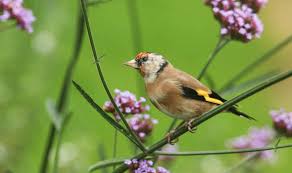Maasai Women
Dear Reader,
This poem 'Bridal Red' is one I often think about because I was so moved by the story it told.
I had watched a documentary about a young girl from the Maasai tribe in Kenya. I have never forgotten it and still think about this girl sometimes, even now. She lived in a village, keeping watch over the cattle, playing in the river, loving and being loved by her mother, father and many brothers and sisters. But then, when she was about fourteen, men from a neighbouring tribal village, about eighteen miles from her own, came looking for a bride and, after hard bargaining, she was sold. The girl was devastated and cried racking tears. But she was covered in red sand, decorated in elaborate beads, and was made to walk over the mountains to join the man she was to marry. The documentary did not show her in the village, but informed us at the end that she had died after being there only six weeks. It did not tell us what the young girl died of, but I suspect of a broken heart.
The poem is one I wrote later, in great sorrow.
*
Bridal Red
I saw
a young girl smiling,
laughing, threading beads, minding goats,
chasing chickens, pulling feathers from their tails,
holding hands with sisters, friends,
chattering, gossiping, rough and tumbling
in bright sunlight.
I saw
scrub-plains, white rocks and blue,
blue mountains, straw huts,
men on haunches, chewing,
and thin dogs, fat babies,
loving families, happiness.
I saw
men, suddenly, appear from a distant village,
offering cows and sheep as an exchange
for a shepherd in need of a woman, a wife.
The girl was chosen,
a bargain was struck.
I saw
her stand silently, acquiescent,
red ochre paste and mud
plastered on her shaven head
necklaces of golden wire
wound tightly round her neck,
ankle bracelets in profusion.
I saw
her sisters, her friends, not laughing now,
offering presents,
a carved stick, a beaded purse.
At dawn she would leave as the sun rose,
to walk over the mountain pass
to an unknown bridegroom,
an unknown life.
I saw
as she left
her grief, her tears trickling,
then flooding through the paste and mud.
I saw her sorrow as the colour red
and a crown of thorns her maidenhead.
*
Very best wishes, Patricia












